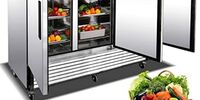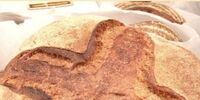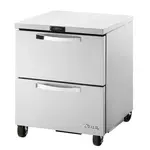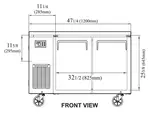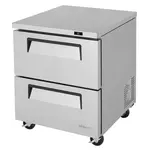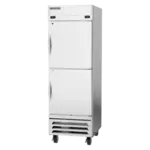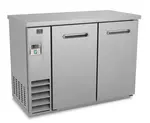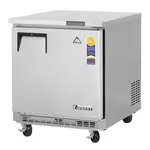Coffee is among the most highly consumed beverages globally, with the U.S. alone accounting for about 450 million cups a day. If you’re among those who enjoy brewing a good cup of coffee in the morning, you’ve probably thought about how best to store it for the long term. In this article, we’ll explore what you need to know about long-term coffee storage.
Does Coffee Go Bad?
Unfortunately, all coffee does go bad. Coffee contains compounds that deteriorate when exposed to oxygen, consequently altering its flavor.
While bad coffee won’t harm you, there’s no point in drinking it as much of its allure is already lost. Bad coffee tastes flat and, depending on how long it has been sitting in your cupboard, it may have even lost its deep, dark color.
The Shelf Life of Coffee
How long your coffee will last is a function of several variables. Coffee's shelf life depends on:
The Type of Coffee
Whole coffee beans last the longest — up to four weeks when opened and under regular storage conditions. Ground coffee, on the other hand, oxidizes quickly and is best used within two weeks of opening. Instant coffee should be consumed within two weeks, while brewed coffee shouldn't go past 12 hours, as it will go rancid.
The “Best Before” Date
Some coffee products have longer shelf life than others. Always check the “best before” date to see how long the coffee will stay fresh based on the manufacturer's recommendations.
Storage Conditions
How long coffee is good for greatly depends on specific storage conditions. When stored in a pantry, sealed ground coffee lasts about three to five months, while whole coffee beans can last six to nine months. While in a commercial freezer, unopened ground coffee lasts about one to two years, while whole coffee beans last two to three years. Opened ground coffee lasts three to five months in the pantry and the freezer, while opened coffee beans can last six months in the pantry and up to two years in the freezer.
Factors That Affect Coffee's Shelf Life
Knowing what degrades coffees the key to storing it right. Here are coffee's main enemies:
• Oxygen: Exposing roasted coffee beans to air is the fastest way to make them stale. Oxidation affects ground coffee even more due to its increased exposed surface area.
• Moisture: Although whole beans coffee last the longest, exposure to humidity and wetness instantly causes them to deteriorate.
• Heat: Coffee beans instantly lose their flavor when exposed to heat.
• Light: Like heat, light speeds up the breakdown process, causing your coffee to lose its flavor. So, while coffee beans might look really good displayed in your kitchen in glass jars, they're best stored in opaque containers.
How to Store Coffee
Now that you know how long coffee lasts and the factors that affect its shelf life, check out these tips on how to store coffee:
Leave It in the Manufacturer's Bag
Coffee manufacturers often use dark, high-quality coffee bags to help increase the shelf life. So although coffee is aesthetically pleasing in glass jars, it'll last longer in the coffee bag. If you don't have airtight, lightproof containers, leave the coffee in its packaging and squeeze out all the air before storage.
Keep It in a Controlled Temperature Environment
Leaving your coffee in the cabinet right next to your cooking area exposes it to heat, while placing it on your kitchen island exposes it to fluctuating temperatures. When you store coffee in the refrigerator, it can absorb the aromas of the other food items, resulting in a funky taste.
For long-term coffee storage, leave it in your freezer. It's cold and dark enough to keep it fresh longer (it may last up to two years.) Just ensure that you use airtight bags or containers to minimize oxygen exposure.
If you’re storing coffee in large amounts, divide it into smaller bags or airtight containers before keeping it in your freezer. Most importantly, brew it immediately after you remove it from your freezer for the ultimate coffee taste.
Creative Ways to Use Bad Coffee
If, based on our long term coffee storage guide, yours coffee is already bad, here's how to put it to good use:
• Make yummy chocolate-covered espresso: Melt regular chocolate over low heat, mix your stale coffee beans in and then place them on parchment paper. Wait till they cool, and you'll have yourself an affordable and super yummy snack.
• Compost: Compost containing coffee beans and coffee grounds is richer in nutrients than regular compost. It speeds up the breakdown process and adds organic materials to the soil, improving its overall quality.
• Create an insect repellent: Coffee typically has a very potent odor. Even when stale, it still retains some of its smell. Since bugs and insects have a strong sense of smell, stale coffee grounds naturally repel them. Sprinkle out stale coffee grounds or beans around your yard to keep pests out. If you have a significant mosquito problem, burn the stale coffee beans or grounds in a tin and leave it in your yard every evening. The potent coffee smell is incredibly effective in repelling mosquitoes. You can also mix coffee grounds with dog shampoo to get rid of fleas.
• Clean burnt pots and pans: Stale coffee grounds are effective in removing burned-on residue from pots and pans. They loosen the dirt and do quite a good job of scrubbing the surface.
What About Brewed Coffee?
Here's how to store that cup of glorious, rich coffee you made before you were rudely interrupted by a work call:
• Use thermal storage: If you have a thermal dispenser, tumbler, or bottle, pour your coffee in there until you're done.
• Store coffee in fridge: Storing brewed coffee in a freezer might ruin its taste. Store it in your refrigerator, and if you must store it in the freezer, pour it in an ice cube tray before storage. You can use the cubes for your iced coffees or to flavor your stews.
How to Use Leftover Brewed Coffee
Although the two brewed coffee storage methods described above help, brewed coffee is best fresh. If you have no thermal storage and cannot store coffee in refrigerator, here are creative ways to use it later:
• Make a hair mask: Coffee is incredibly beneficial to your hair. It promotes growth, improves texture, exfoliates the scalp, and improves natural hair color. To use as a hair mask, shampoo and dry your hair first, then pour your brewed coffee on it, let it sit for five minutes, and thoroughly rinse.
• Water your plants: Acid-loving plants like orchids experience faster growth when you water them with brewed coffee. However, limit your use to once every week, as coffee is quite acidic.
• Make a Nutella iced coffee: For a delicious treat, blend or whisk your leftover brewed coffee with Nutella, and then refrigerate for twenty minutes.
• Bake and cook: There are many fantastic coffee-based recipes you can try out using leftover brewed coffee. From the classic Italian tiramisu cake to breakfast disco fries, you'll love adding a little brewed coffee to your recipes once in a while.
Store Coffee the Right Way and Enjoy More Delicious Cups
As shown, long-term coffee storage is best done in a high-quality freezer. If you have leftover coffee beans or grounds, put them in a resealable plastic bag and stash them in your under counter freezer so you can enjoy your fresh, aroma-rich coffee later.








